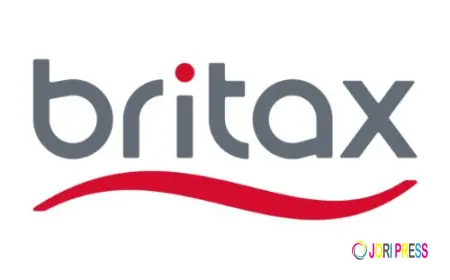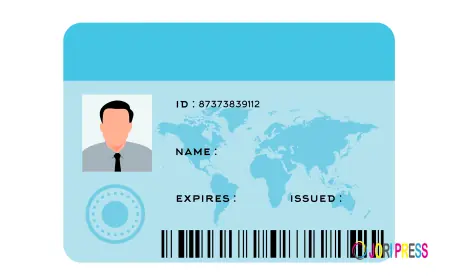The Rise of IPTV in the UK A Revolution in How We Watch TV
n the UK, IPTV (Internet Protocol Television) is transforming how people access and enjoy television content. Unlike traditional satellite or cable TV, IPTV uses the internet to stream live TV and on-demand shows directly to devices such as smart TVs, smartphones, and tablets. With its flexible pricing, customizable content, and high-quality streaming, IPTV is becoming an increasingly popular choice for UK households. This blog explores how IPTV works, why it's gaining popularity, the key providers in the UK, and the challenges users may face. It also highlights the future potential of IPTV, driven by advancements in internet technology and consumer demand for more accessible entertainment options.
In recent years, IPTV (Internet Protocol Television) has emerged as a game-changer in the world of television. Offering a more flexible, convenient, and affordable alternative to traditional cable and satellite TV, IPTV has gained significant traction in the UK. With the increasing demand for on-demand content and internet-based streaming services, IPTV has transformed the way millions of people in the UK consume television and entertainment.
But what exactly is IPTV, and why is it becoming so popular? Let’s dive into the world iptv in the uk and explore how it’s revolutionising the viewing experience for UK residents.
What is IPTV?
IPTV stands for Internet Protocol Television. Unlike traditional TV services that rely on satellite or cable signals to deliver content, IPTV uses the internet to stream television programs, movies, sports, and other content directly to your devices. This can include set-top boxes, smart TVs, computers, smartphones, or tablets.
IPTV is often delivered via subscription services, providing access to both live television broadcasts and on-demand content. With the rise of fast and reliable broadband networks, IPTV has become a preferred option for many, as it allows for a more personalized and flexible viewing experience.
How Does IPTV Work?
IPTV operates by converting traditional television signals into digital data that is transmitted over the internet. This means that instead of relying on the physical infrastructure of cables or satellites, IPTV streams data directly to your device over a broadband connection.
When you subscribe to an IPTV service, you typically receive a dedicated set-top box (although some services work directly through smart TVs or apps). This box is connected to your internet router and decodes the IPTV signal, allowing you to watch TV in real-time or on-demand.
Some IPTV services offer live channels (e.g., BBC, ITV, Sky), while others provide access to video-on-demand (VOD) content, much like popular streaming platforms such as Netflix or Amazon Prime. Some even offer catch-up TV, letting you watch shows that have aired earlier.
Why is IPTV Becoming So Popular in the UK?
Several factors have contributed to the rapid rise of IPTV in the UK. Here’s why it’s so appealing to UK viewers:
-
Cost-Effective: Traditional cable or satellite TV subscriptions can be expensive, especially when you factor in premium channels, pay-per-view content, and equipment fees. IPTV offers more affordable alternatives, with many services offering flexible pricing plans and no long-term contracts. Viewers can choose the channels or packages they want, avoiding the high fees that come with traditional providers.
-
Flexibility and Convenience: One of the biggest selling points of IPTV is its flexibility. With IPTV, you’re not tied to a single location or set-top box. You can watch your favorite shows on your TV, tablet, or smartphone from anywhere, as long as you have an internet connection. Many IPTV providers also offer on-demand content, so you can watch shows whenever you want—without the need to adhere to traditional broadcast schedules.
-
Wide Range of Content: IPTV providers offer a wide array of channels, including popular UK networks such as BBC, ITV, Channel 4, and Channel 5, as well as premium channels like Sky Sports and BT Sport. IPTV services also often include international channels, meaning viewers can access content from around the world, which is particularly appealing for expats and people with multilingual households.
-
Customizability: Unlike traditional TV packages, where you’re stuck with a fixed channel lineup, IPTV allows you to select exactly what content you want to watch. You can often customize your package by subscribing to specific genres, channels, or even single shows, giving you control over your viewing experience.
-
Better Picture Quality: IPTV generally offers HD (High Definition) or even 4K quality, which is superior to the standard-definition channels that you often find with traditional satellite or cable TV providers. This high-quality stream makes the viewing experience more immersive, especially for movie buffs or sports fans..
Challenges and Legal Concerns
While IPTV offers a host of benefits, it’s not without its challenges:
-
Legal Issues: There are some IPTV services that offer access to pirated or unlicensed content. These services can be tempting due to their low cost or expansive content offerings, but they operate in violation of copyright laws. Watching pirated IPTV streams is illegal and could result in fines or other legal consequences.
-
Internet Speed and Bandwidth: Since IPTV relies on the internet, the quality of your viewing experience depends on the speed and stability of your connection. A slow or unreliable internet connection can result in buffering or lower-quality video, detracting from the enjoyment of your content.
-
Regulatory Oversight: Unlike traditional TV services, which are regulated by the Ofcom (the UK’s communications regulator), some IPTV services, particularly independent ones, lack the same oversight, which can sometimes lead to issues around content quality, customer service, or even fraud.
The Future of IPTV in the UK
The future of IPTV in the UK looks promising, with advancements in 5G technology and fibre-optic broadband expected to improve the overall quality of IPTV services. As more households switch to internet-based TV, traditional cable and satellite providers will likely continue to adapt, offering more flexible packages and content delivery options to stay competitive.
With growing interest in streaming services, the market for IPTV is likely to expand even further, offering more channels, more content, and even more interactive features for UK viewers.
Conclusion
IPTV is changing the way people in the UK watch television. With its cost-effective pricing, flexibility, and wide range of content, it’s no wonder that more and more viewers are making the switch. While there are challenges, particularly around legal concerns and internet speeds, the future of IPTV in the UK looks bright. As technology continues to evolve, so too will the IPTV experience, offering an even better, more immersive way to enjoy television in the years to come.
What's Your Reaction?
 Like
0
Like
0
 Dislike
0
Dislike
0
 Love
0
Love
0
 Funny
0
Funny
0
 Angry
0
Angry
0
 Sad
0
Sad
0
 Wow
0
Wow
0


















































